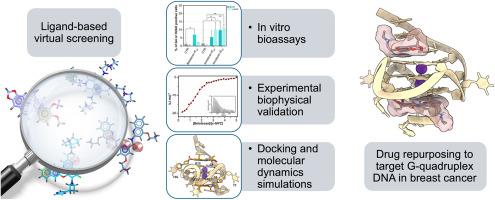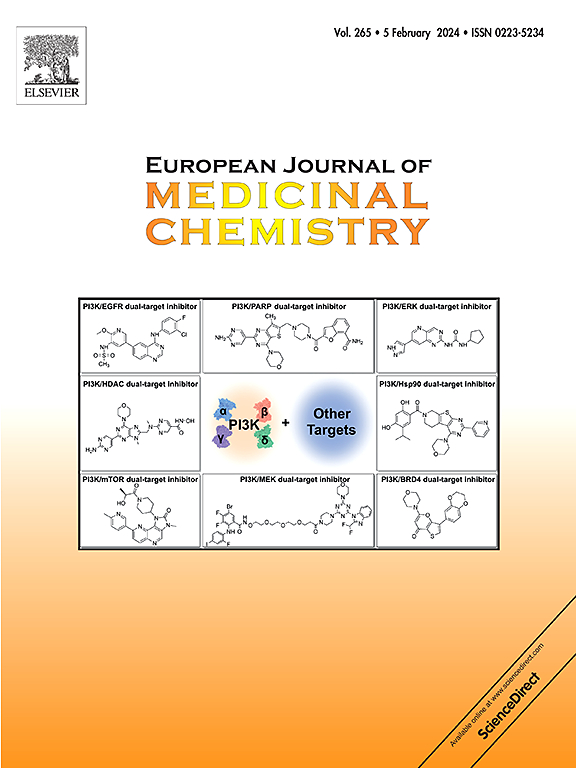Repurposing FDA-approved drugs to target G-quadruplexes in breast cancer
IF 6
2区 医学
Q1 CHEMISTRY, MEDICINAL
引用次数: 0
Abstract
Breast cancer, a leading cause of cancer-related mortality in women, is characterized by genomic instability and aberrant gene expression, often influenced by noncanonical nucleic acid structures such as G-quadruplexes (G4s). These structures, commonly found in the promoter regions and 5’-untranslated RNA sequences of several oncogenes, play crucial roles in regulating transcription and translation. Stabilizing these G4 structures offers a promising therapeutic strategy for targeting key oncogenic pathways. In this study, we employed a drug repurposing approach to identify FDA-approved drugs capable of binding and stabilizing G4s in breast cancer-related genes. Using ligand-based virtual screening and biophysical methods, we identified several promising compounds, such as azelastine, belotecan, and irinotecan, as effective G4 binders, with significant antiproliferative effects in breast cancer cell lines. Notably, belotecan and irinotecan exhibited a synergistic mechanism, combining G4 stabilization with their established topoisomerase I inhibition activity to enhance cytotoxicity in cancer cells. Our findings support the therapeutic potential of G4 stabilization in breast cancer, validate drug repurposing as an efficient strategy to identify G4-targeting drugs, and highlight how combining G4 stabilization with other established drug activities may improve anticancer efficacy.

求助全文
约1分钟内获得全文
求助全文
来源期刊
CiteScore
11.70
自引率
9.00%
发文量
863
审稿时长
29 days
期刊介绍:
The European Journal of Medicinal Chemistry is a global journal that publishes studies on all aspects of medicinal chemistry. It provides a medium for publication of original papers and also welcomes critical review papers.
A typical paper would report on the organic synthesis, characterization and pharmacological evaluation of compounds. Other topics of interest are drug design, QSAR, molecular modeling, drug-receptor interactions, molecular aspects of drug metabolism, prodrug synthesis and drug targeting. The journal expects manuscripts to present the rational for a study, provide insight into the design of compounds or understanding of mechanism, or clarify the targets.

 求助内容:
求助内容: 应助结果提醒方式:
应助结果提醒方式:


